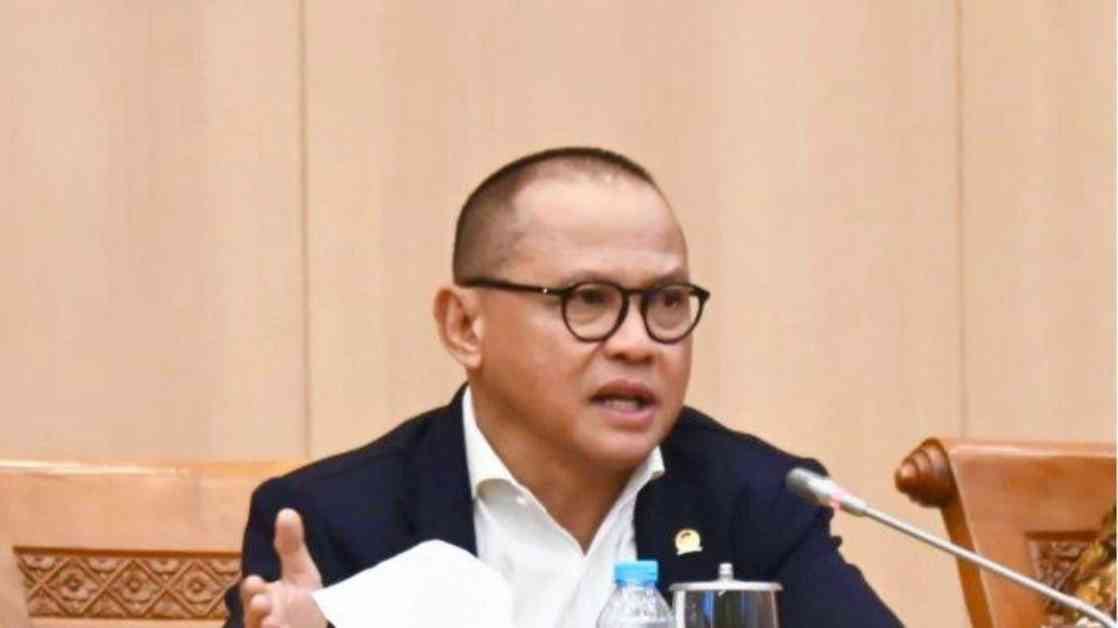Improving Business Management of Fuel: A Commitment to Transparency and Accountability
In a bid to enhance the management of Pertamina and improve the governance of fuel trade to prevent recurring incidents of corruption in crude oil imports that harm the public, the House of Representatives’ Commission XII has taken a proactive stance. With a focus on upholding the law and ensuring transparency, Commission XII member Mukhtarudin expressed the committee’s commitment to addressing these critical issues.
A recent impromptu inspection carried out by Commission XII and the Oil and Gas Institute (Lemigas) from the Ministry of Energy and Mineral Resources at several gas stations aimed to verify that the products distributed to the public meet the required standards and are of high quality. This collaborative effort underscores the importance of oversight and coordination in fuel trade governance with Pertamina to prevent similar cases from arising in the future.
“We will reinforce supervision and coordination in the fuel trade management with Pertamina to prevent such cases from occurring again,” Mukhtarudin emphasized in a statement on Tuesday, March 4, 2025.
As part of their efforts to promote clarity and combat misinformation surrounding the alleged tampering of fuel quality with RON 92 or Pertamax, Mukhtarudin urged Pertamina Patra Niaga to provide comprehensive explanations and engage in widespread public awareness campaigns. The aim is to prevent confusion and misinformation that may influence the public, potentially leading them to turn to private gas stations due to these issues, ultimately causing losses for Pertamina and the country. Anticipating and addressing such challenges is crucial to maintaining public trust in Pertamina.
Furthermore, Mukhtarudin expressed disappointment at the inaccurate narratives circulating in the public domain regarding this case. Some parties have wrongfully implicated Energy and Mineral Resources Minister Bahlil Lahadalia in the midst of this corruption scandal. However, Minister Bahlil assumed office in August 2024, while the corruption case transpired between 2018 and 2023. Responsibility for this incident falls on the previous Energy and Mineral Resources Minister.
“I hope that information shared with the public is based on accurate facts and not exploited for specific political agendas,” Mukhtarudin reiterated. He stressed that the exposure of this corruption scandal should serve as a pivotal moment for Pertamina and its subsidiaries to embark on structural reforms in fuel trade governance.
“This reform momentum is essential to realign the management of the country’s natural resources with the constitutional mandate,” Mukhtarudin concluded.
### Upholding Integrity and Accountability: Strengthening Governance in Fuel Trade
The commitment of Commission XII to enforcing legal standards and enhancing transparency in fuel trade management with Pertamina highlights a vital step toward preventing corruption and safeguarding public interests in the energy sector. By conducting surprise inspections and collaborating with industry experts, the commission aims to ensure the quality and integrity of fuel products distributed to consumers, underscoring the importance of accountability in the oil and gas industry.
### Navigating Misinformation and Political Narratives: A Call for Clarity and Responsibility
Amidst the challenges of misinformation and inaccurate public narratives surrounding the fuel corruption scandal, it is imperative for stakeholders to prioritize accurate information dissemination and avoid politicizing the issue. By holding past officials accountable for their roles in the corruption case and refraining from baseless accusations against current leaders, a more transparent and accountable governance framework can be established for the energy sector.
In conclusion, the ongoing efforts to reform fuel trade governance and promote accountability within Pertamina and its subsidiaries reflect a collective commitment to upholding the rule of law and ensuring the ethical management of the country’s natural resources. By addressing systemic challenges, combating misinformation, and fostering transparency, stakeholders can work together to build a more resilient and trustworthy energy sector for the benefit of all citizens.






















